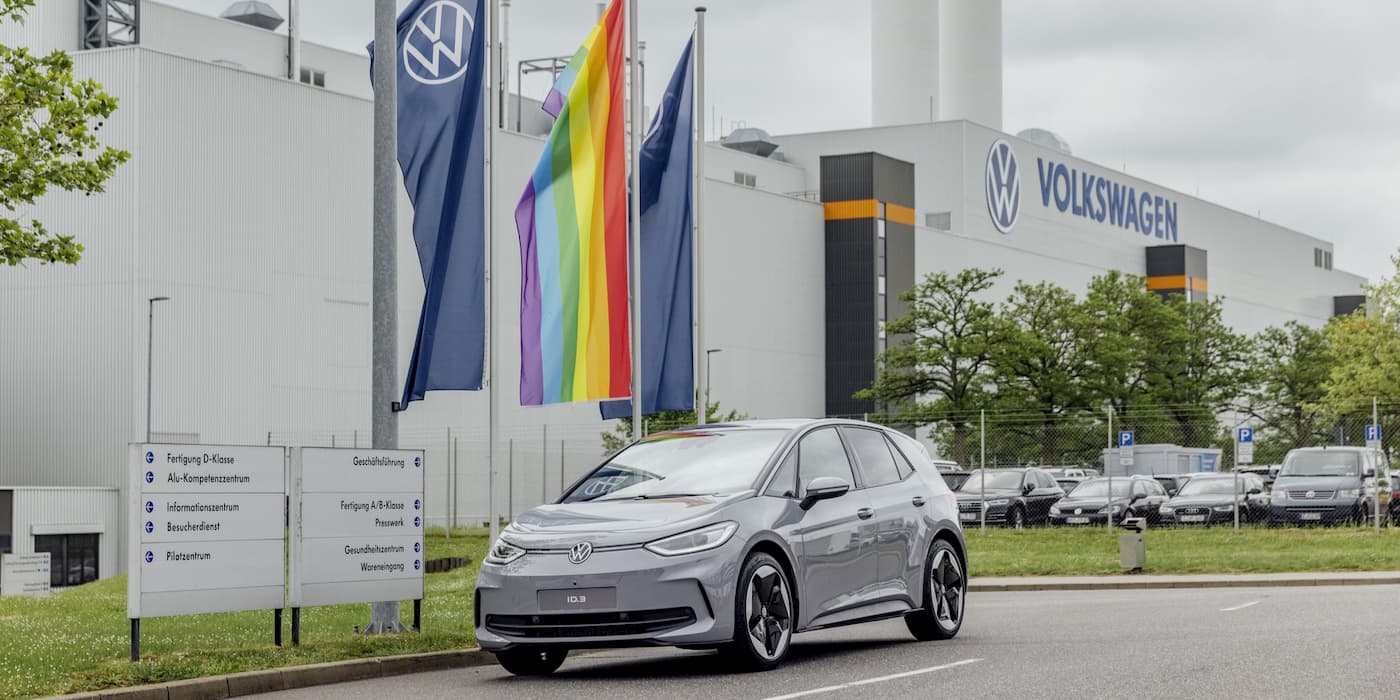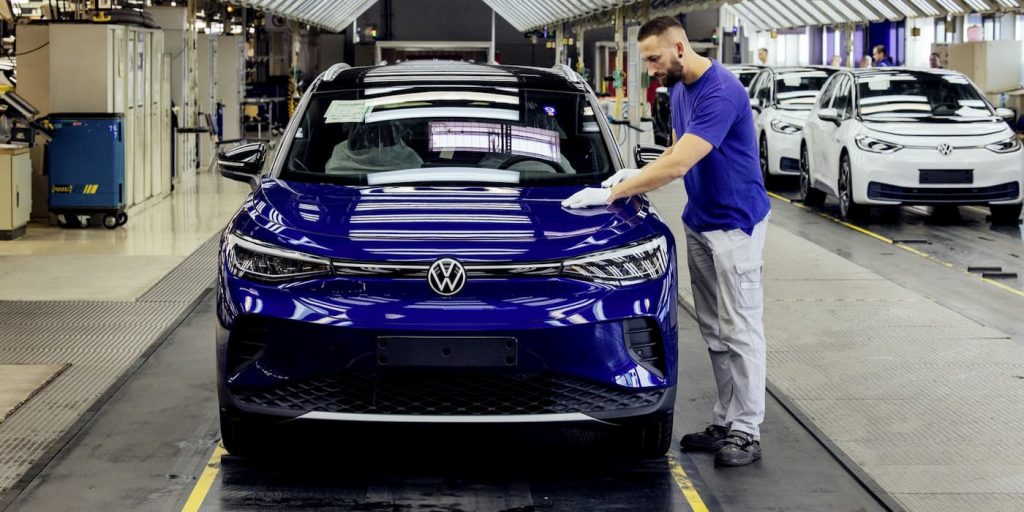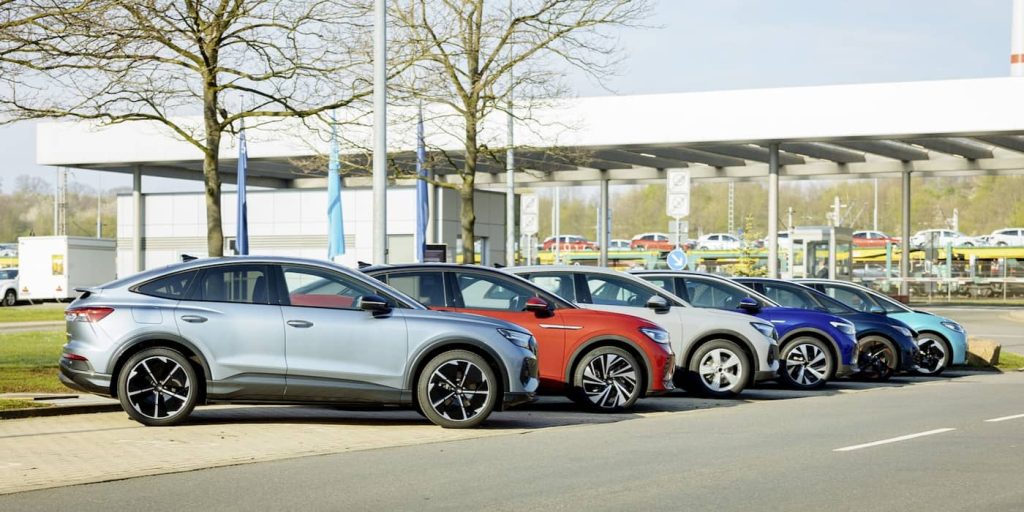
Volkswagen’s EV production woes in Germany continue. Volkswagen announced it’s pausing EV production at its German plant due to a lack of electric motors.
Volkswagen halts EV production at German plant
After halting EV production at its Dresden site last month, Volkswagen is pausing output of several electric motels at another plant in Germany.
Volkswagen is pausing EV production at its Zwickau plant for roughly three weeks. The reason? A lack of electric motors. A VW spokesperson told Reuters, “The production of e-drives at the Volkswagen Group Components site in Kassel is currently only possible to a limited extent.”
The halt in manufacturing will impact VW Group electric models, including the Audi Q4 e-tron (and Sportback) and the Volkswagen ID.4 and ID.5 models.
According to the source, the electric VW ID.3 and Cupra Born are not affected by the shortage.
Zwickau is Volkswagen’s largest EV production site in Europe. The automaker announced a nearly $1.3B investment in 2018 to transform the plant to build electric models.

However, higher interest rates and fewer subsidies are leading to diminishing demand for the VW brand. Volkswagen cut around 300 employees from its Dresden plant at the end of October, citing slowing orders.
The news comes after VW already planned to shut down a production line at Zwickau over the holidays due to low demand.

Although electric car deliveries rose 45% in the first nine months of the year, the company’s CFO, Arno Antilitz, said EV orders in Europe were down to 150,000. That’s 50% fewer than last year’s total of 300,000.
VW’s EV sales share reached 9% in the third quarter, putting it on track to hit its goal of 8%-10% in 2023.
Electrek’s Take
Although many headlines are pushing slowing EV demand due to automakers like Volkswagen, Ford, and GM delaying production and EV targets, that’s not exactly the case.
Higher interest rates, combined with Tesla’s drastic price cuts this year, are making it tough for competitors to keep up.
Tesla’s Model Y remained the best-selling car (gas or electric) in September on its way to becoming the top-selling vehicle globally this year.
Tesla had a head start and is using it to its advantage with higher volumes. By driving down prices, the EV leader is making it challenging for rivals to compete.
Meanwhile, Europe accounted for 61% of VW electric models sold through September. In second was China, the company’s largest market for profits. Although deliveries were up slightly (+4%) in China, Antilitz said VW could lose market share until new EV models with XPeng roll out.
FTC: We use income earning auto affiliate links. More.

